By Sarah Weld
Berkeley Law recently welcomed 11 new hires to its flourishing clinical program — three teaching fellows and eight supervising attorneys. Their arrival continues to expand the program’s outreach to marginalized communities and allows the clinics to offer more students hands-on training, small classes, and mentorship. Future plans for the program include adding five tenure-track faculty over the next five years as well as launching new clinics.
Environmental Law Clinic
Sabrina Ashjian, supervising attorney
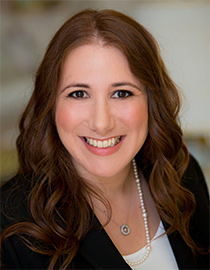
Ashjian began her career as a public defender serving in juvenile and adult courts as well as restorative programs. Former chair of the Cannabis Control Appeals Panel, she is the California state director for the Humane Society of the United States. Ashjian has also worked as a consumer fraud and environmental crimes prosecutor, pursuing cases against companies for predatory practices and environmental harms.
“There is often a great power inequity in terms of legal access between the environmentally irresponsible actors and the economically disadvantaged neighborhoods that must endure the consequences of air, water, and soil pollution,” says Ashjian, who serves on several nonprofit boards, including the National Women’s Political Caucus and the California Lawyers Association Environmental Law Section. “I’m excited to be a part of balancing that inequity by imparting solid skills upon future environmental justice practitioners and advocates.”
Antonette Cordero, supervising attorney
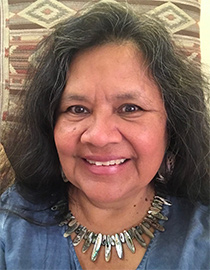
Cordero worked for the California Attorney General’s Office for almost 25 years, serving as chief of legal affairs from 2017 to 2019. She also worked in its Civil Rights Enforcement Section and the Environment Section, where she represented the attorney general, the Native American Heritage Commission, and the Fair Employment and Housing Commission. Two California governors appointed Cordero to executive positions with the Department of Toxic Substances Control, including as its chief counsel and the deputy director of its Hazardous Waste Management Program.
“I am excited to work with our students to explore respectful and constructive ways of working with tribal nations, organizations, and communities, in ways that begin to rectify the historic and persistent erasure of Native culture, history, and existence from public issue-framing and decision-making structures,” says Cordero. A member and former tribal chair of the Coastal Band of the Chumash Nation, she serves on the Sacred Places Institute for Indigenous Peoples’ Board of Advisors and spent almost 20 years on the board of the American Civil Liberties Union of Southern California.
Steve Castleman, supervising attorney
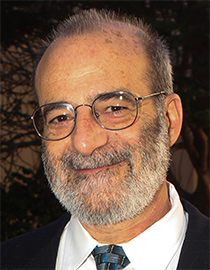
Castleman began his legal career as an investigator in the San Francisco District Attorney’s White Collar Crime Unit while attending law school at night. He then became a prosecutor in the San Francisco District Attorney’s Criminal Division before returning to the White Collar Crime Unit, where he helped pioneer local civil and criminal environmental enforcement and created the Environmental Unit, which he led for a decade. He obtained the first misdemeanor and felony jury convictions under California’s Hazardous Waste Control Act.
“I’m most looking forward to developing the close working and personal relationships staff attorneys have with students as we train them to be effective, ethical lawyers and fight for environmental justice together,” says Castleman, a former staff attorney at Golden Gate University School of Law’s Environmental Law and Justice Clinic. His projects included documenting the disproportionate impact of concrete manufacturers’ air pollution on communities of color and exposing fraud in the cleanup of radiation contamination at a San Francisco Superfund site, a former Navy base.
Policy Advocacy Clinic
Cameron D. Clark, teaching fellow
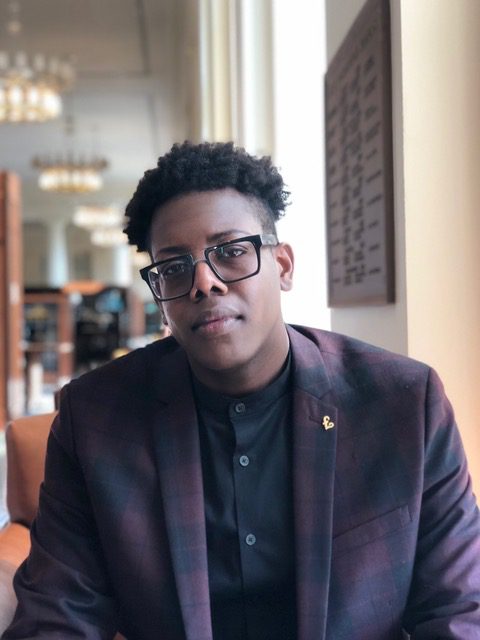
A civil rights attorney by training, Clark joins the clinic following fellowships with the Southern Poverty Law Center in New Orleans and the Texas Civil Rights Project in Houston. They developed litigation and legislative advocacy to increase access to indigent defense, challenge the practice of sentencing children to life without parole, and eliminate solitary confinement, among other projects.
“Despite being a litigator by training, my most meaningful victories have been achieved in the streets and at the legislature, supporting community organizations as they leverage their power and resources to create change,” says Clark, who received their law degree from Harvard Law School, where they studied as a NAACP-LDF Earl Warren Scholar, a Harvard University Presidential Scholar, and managing editor of the Harvard Blackletter Law Journal. “Clinical education was the cornerstone of my time in law school. Law clinics confirmed my passion for civil rights, and I look forward to cultivating that same welcoming environment to inspire the next generation of law and policy professionals.”
Delaney Green, teaching fellow
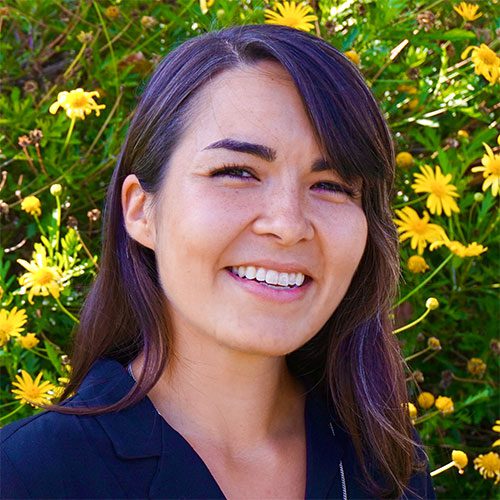
Green returns to the clinic after spending a year there as a student working on juvenile fee abolition campaigns in the Deep South. In addition to her clinic work during graduate school at UC Berkeley’s Goldman School of Public Policy, she was a policy consultant in the Financial Justice Project at the San Francisco Office of the Treasurer & Tax Collector, researching victim restitution on behalf of the California Debt-Free Justice Coalition and the clinic. Green also was administrative coordinator for Students of Color in Public Policy, a member of Reimagining Justice — a student organization focused on carceral abolition and criminal-legal reform policy — and a member of the Berkeley Interdisciplinary Migration Initiative.
“My education in public policy analysis and my experiences as a community organizer helped me define the harm that the criminal-legal system inflicts upon the most vulnerable people in our society,” Green says. “But it was not until joining the clinic as a student that I witnessed effective solutions to eliminate these racially discriminatory policies in a way that neither public policy nor law seemed to do alone.”
Yasmine Tager ’18, teaching fellow
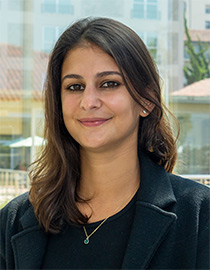
Since 2019, Tager served as the East Bay Community Law Center’s (EBCLC) inaugural Brian Lewinstein Equal Justice America Fellow, training and supervising law students to represent youth in juvenile delinquency, school discipline, and special education cases, supporting community-based organizations advocating to reimagine the juvenile justice system. During law school, Tager interned in EBCLC’s Education, Defense & Justice for Youth Clinic, and externed at the U.S. District Court for the Northern District of California and at the San Francisco Public Defender, Juvenile Division representing youth charged with criminal offenses.
“Clinical programs shaped my experience at Berkeley Law. EBCLC is where I both discovered and cemented my passion for youth justice — first as an intern, and later as a clinical supervisor. It’s also where I met many of the mentors I continue to lean on and learn from,” Tager says. “I feel strongly about providing a similar experience for law students – particularly law students who may not feel represented by clinical faculty.”
East Bay Community Law Center
Milo Manopoulos Beitman, supervising attorney, EBCLC Health and Welfare Clinic
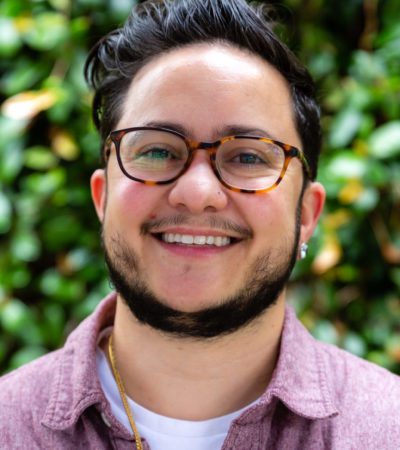
Manopoulos Beitman has worked as a staff attorney at Legal Assistance for Seniors helping with public benefits, health law, and housing. He also worked pro bono at Bay Area Legal Aid and Open Door Legal, and was a legal fellow for the International Justice Resource Center. During law school, Manopoulos Beitman interned with the California Appellate Project and the Queer African Youth Networking Center in West Africa, and clerked for Judge Maria-Elena James in the U.S. District Court for the Northern District of California.
“I have long admired the work of EBCLC and saw the organization as a true community leader for sustainable change, and as movement leaders — acknowledging that law is one of the many imperfect tools to fight for a more just world,” he says. “I’m looking forward to giving students an opportunity to engage with the community and provide client-centered advocacy.”
Hannah Flanery ’19, supervising attorney, EBCLC Housing Clinic

Flanery spent three semesters with the same clinic as a student. Since law school, she has worked as a staff attorney at Legal Assistance to the Elderly in San Francisco, defending seniors and adults with disabilities in eviction cases. Flanery received Berkeley Law’s Eleanor Swift Award for Public Service and Pro Bono Champion Award for her work co-founding BLAST, the school’s alternative service break program. She was also awarded the Brian M. Sax Prize for Excellence in Clinical Advocacy, Honorable Mention. Before law school, Flanery worked at a nonprofit medical clinic for the uninsured in Kentucky, as a Peace Corps volunteer in Ukraine, and as a legal advocate at the Homeless Advocacy Project in San Francisco.
“So many of my legal aid heroes work at EBCLC, and they are the people I want to be learning from and working alongside,” she says. “My time in clinic was easily the best part of my law school experience. I had extraordinary supervisors who taught me so much about housing law and what it means to be a strong advocate for our clients.”
Desirée Nguyen Orth, director, EBCLC Consumer Justice Clinic
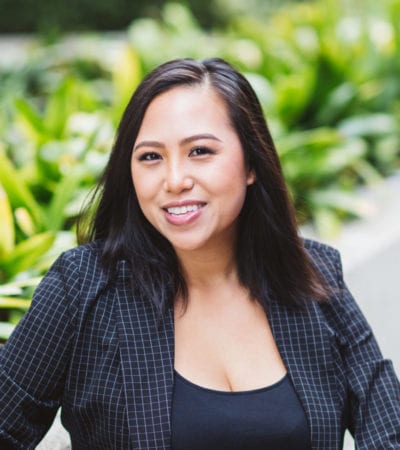
Nguyen Orth ran the Consumer Advocacy Project at the Bar Association of San Francisco’s Justice & Diversity Center and a private practice centered on working with women business owners in the creative industry. A first-generation Asian American Pacific Islander, she is passionate about consumer protection and believes that financial education and literacy are fundamental stepping stones to racial equity. As director, Nguyen Orth focuses on creating consumer protection policy that helps dismantle and correct outdated laws that provide systemic barriers to access for low-income, monolingual, or underrepresented consumers.
“EBCLC shares the same values that I’ve held dear in my professional endeavors,” she says. “I became an attorney to help and empower the most traditionally oppressed people. This work is incredibly taxing and ambitious, but we get so much encouragement and support from the larger organization that it’s easy to stay motivated and stay fighting.”
Cynthia Nguyen Ruff, supervising attorney, EBCLC Housing Clinic
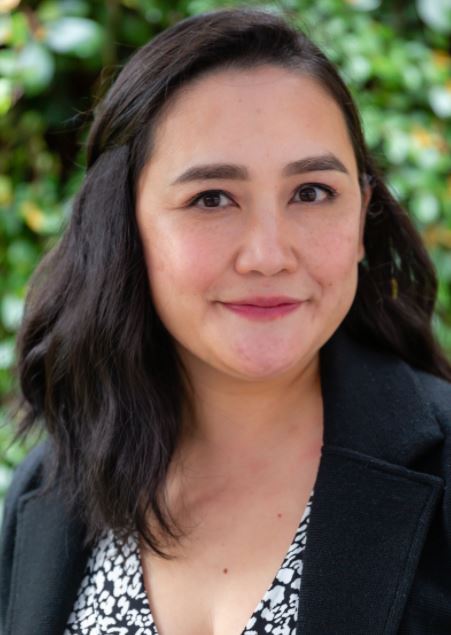
Ruff worked as a deputy public defender representing clients in hearings and jury trials. She is a graduate of UC Hastings College of the Law, where she was an editor of the Constitutional Law Quarterly and awarded the Outstanding Achievement in Pro Bono Distinction and the Bridge Fellows Grant. During law school, Ruff worked as a legal intern and investigator for habeas petitions on behalf of clients on death row. She is fluent in Vietnamese.
“In law school I participated in the Criminal Practice Clinic through the San Francisco Public Defender’s Office. I never felt like I truly fit in anywhere in law school but the Public Defender’s Office felt like home and my supervisors took me in like family. They set the bar high and demanded a lot out of us,” says Ruff, who litigated more than 20 jury trials as a deputy public defender. “It was truly a life-changing experience and has shaped the way I practice. The housing attorneys at EBCLC remind me of my public defender family and I am very much looking forward to working alongside and learning from them.”
Gloria Yi, supervising attorney, EBCLC Education Advocacy Clinic
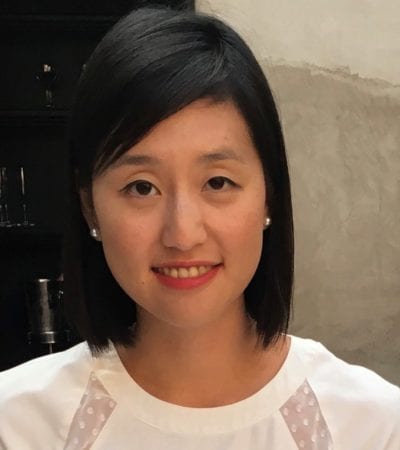
Yi worked as an education rights law fellow at Public Counsel in Los Angeles. She looks forward to continuing to serve young people threatened with being pushed out of school, by providing direct services and advancing related policy. In law school at the University of Southern California, Yi was a Saks Scholar at the Institute for Mental Health Law, Policy, and Ethics and a member of the inaugural First Generation Professional program. She also worked at a literacy nonprofit serving school-age children.
“I want to contribute to the movement promoting education equity in our country,” says Yi, who calls her experiential courses “the highlight of my time in law school in large part due to my supervisors, who served as role models for my dream of becoming a public interest attorney. I chose to work at EBCLC because of its holistic, client-centered model that recognizes that our clients do not lead single-issue lives and also offers a way to serve them while training the next generation of social justice attorneys.”